Comparative and Superlative Adjectives in English Lessons For English

Comparative & Superlative Adjectives in English English Grammar Here
How to form comparative adjectives. If the adjective only has one syllable, you can just add "-er" to make the comparative form. pink → pink er. lean → lean er. fresh → fresh er. If that adjective ends in "e" already, you can just add the "-r" like in these examples: large → large r. pale → pale r. white → white r.
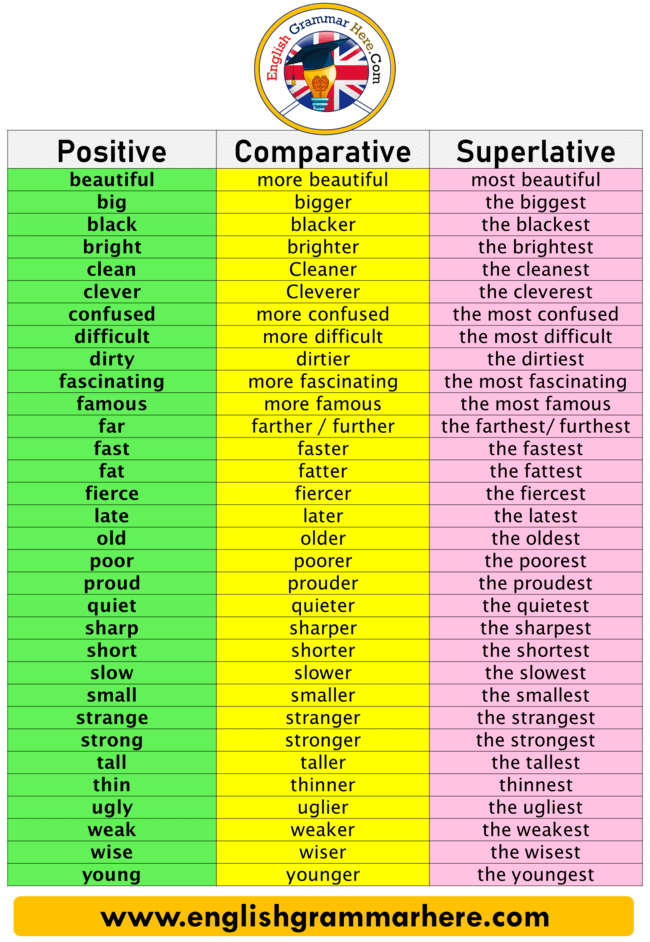
Comparative and Superlative Adjectives, 100 Examples and Exercises
friendly ( comparative friendlier or more friendly, superlative friendliest or most friendly) Generally warm, approachable and easy to relate with in character . Your cat seems very friendly. Inviting, characteristic of friendliness . He gave a friendly smile. Having an easy or accepting relationship with something. a user-friendly software program
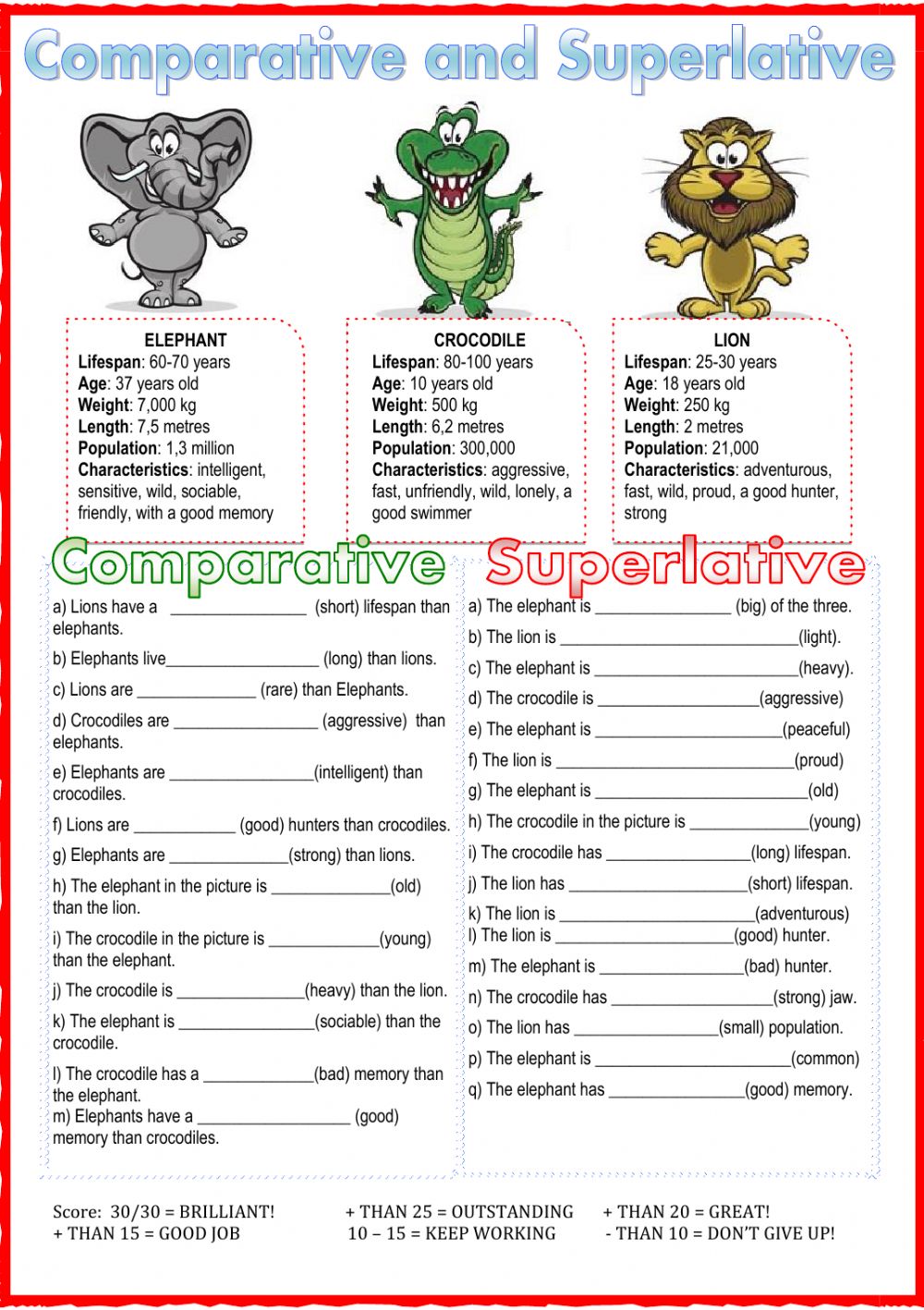
LET'S LEARN TOGETHER!! COMPARATIVE AND SUPERLATIVE ADJECTIVES
In short, the correct one is: 'More Friendly' is correct when comparing multiple people. 'Friendlier' is correct when talking about just one person. The key is that if there's more than one person mentioned, use 'more friendly.' If not, use 'friendlier.' Otherwise, your writing will be incorrect and ungrammatical. Table of Contents 'Friendlier'?

Friendly Comparative And Superlative Brain
Comparative adjectives, such as bigger or better, compare two nouns. Superlative adjectives, such as biggest or best, compare one person or thing against a whole group. Regular comparative and superlative adjectives are formed with -er/est or more/most. Learn the rules for forming comparative and superlative adjective in English grammar. Then put your knowledge to the test in the free online.

Comparative and Superlative Adjectives Comparison of Adjectives ESL
The comparative form is used to compare two people, ideas, or things. The superlative form with the word "the" is used to compare three or more. Comparatives and superlatives are often used in writing to hedge or boost language. Here are some rules and examples of how to form the comparatives and superlatives:
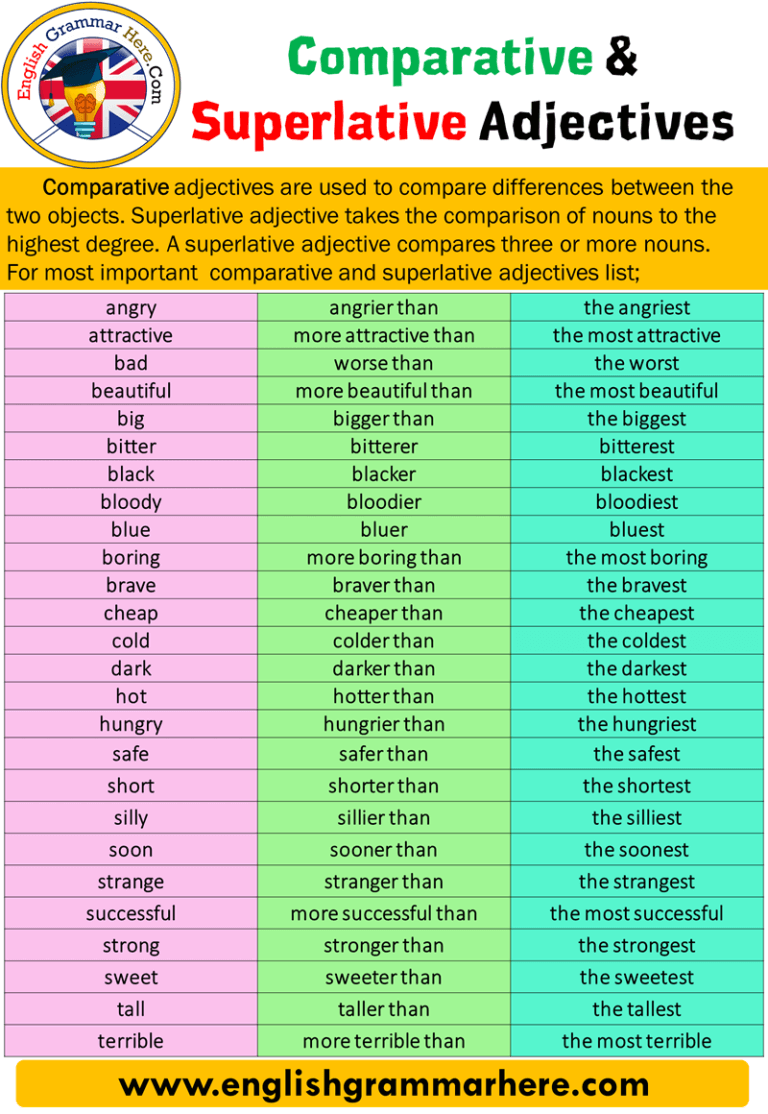
Adjectives, Comparatives and Superlatives List in English English
Comparatives and superlatives are special types of adjectives used when comparing two or more things. The trickiest thing when using comparatives and superlatives is making sure we are writing them the correct way, but with a little practice, comparatives and superlatives can quickly be mastered.
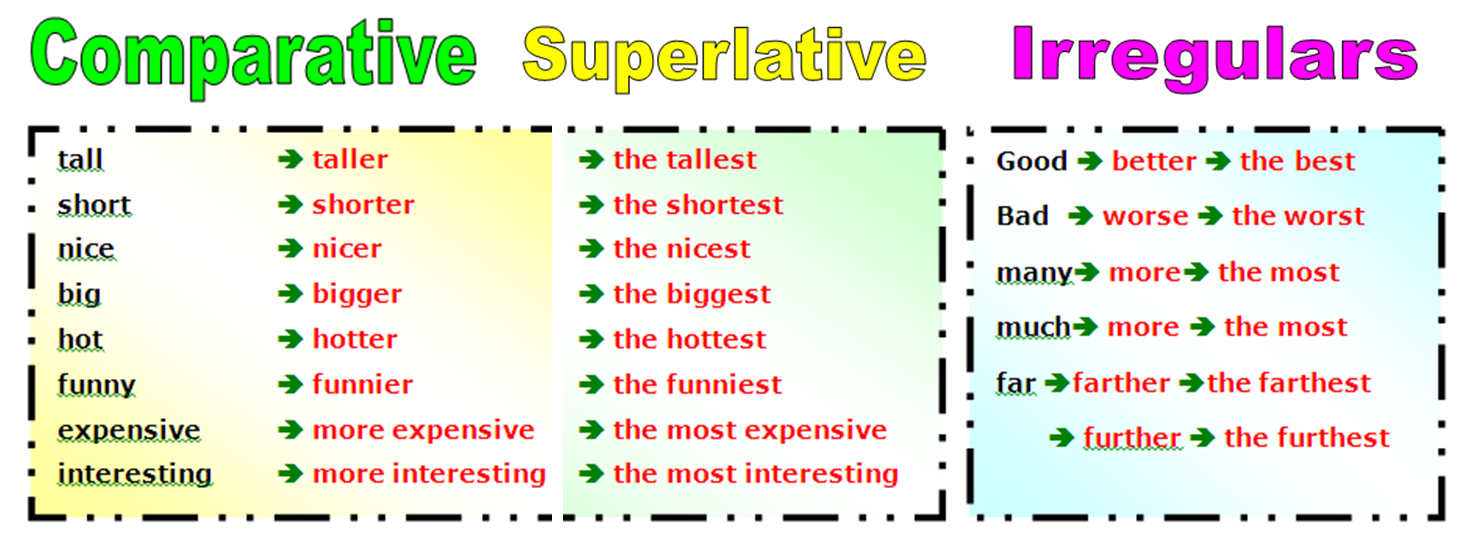
English Intermediate I and Superlative Adjectives
Comparative Adjectives is a great lesson for two reasons. Number one: it's a topic a lot of students make mistakes with, but it's very easy to fix - the rules are simple if you just stick to them. Number two: it'll make you sound much more like a native speaker if you can use the rules effectively. - Matt, teacher from San Diego
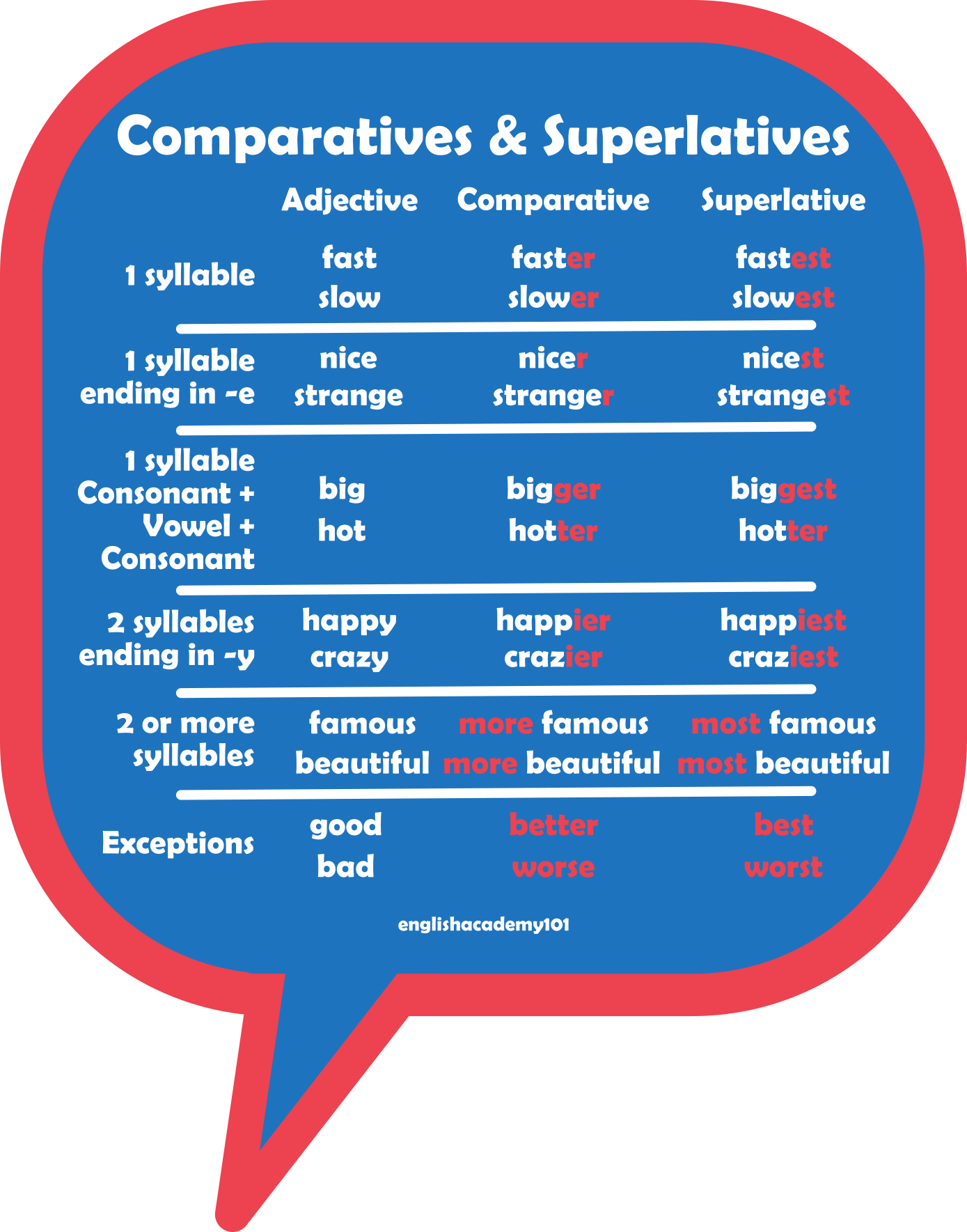
comparatives Archives EnglishAcademy101
Comparatives are adjectives or adverbs used to compare two or more nouns. They express a difference in degree, quality, number or amount. In contrast, superlatives are a form of adjective or adverb that express that someone or something has more or less of a particular quality than anything or anyone else in the same category.

Comparative and Superlative Adjectives Comparison of Adjectives ESL
Comparative adjectives compare one person or thing with another and enable us to say whether a person or thing has more or less of a particular quality: This car is more expensive than my last one. Superlative adjectives describe one person or thing as having more of a quality than all other people or things in a group:

Friendly Comparative and Superlative XavierbilWhitney
a comparative study of the educational systems of two countries; comparative linguistics (grammar) relating to adjectives or adverbs that express more in amount, degree or quality, for example better, worse, slower and more difficult compare superlative Topics Language a2;
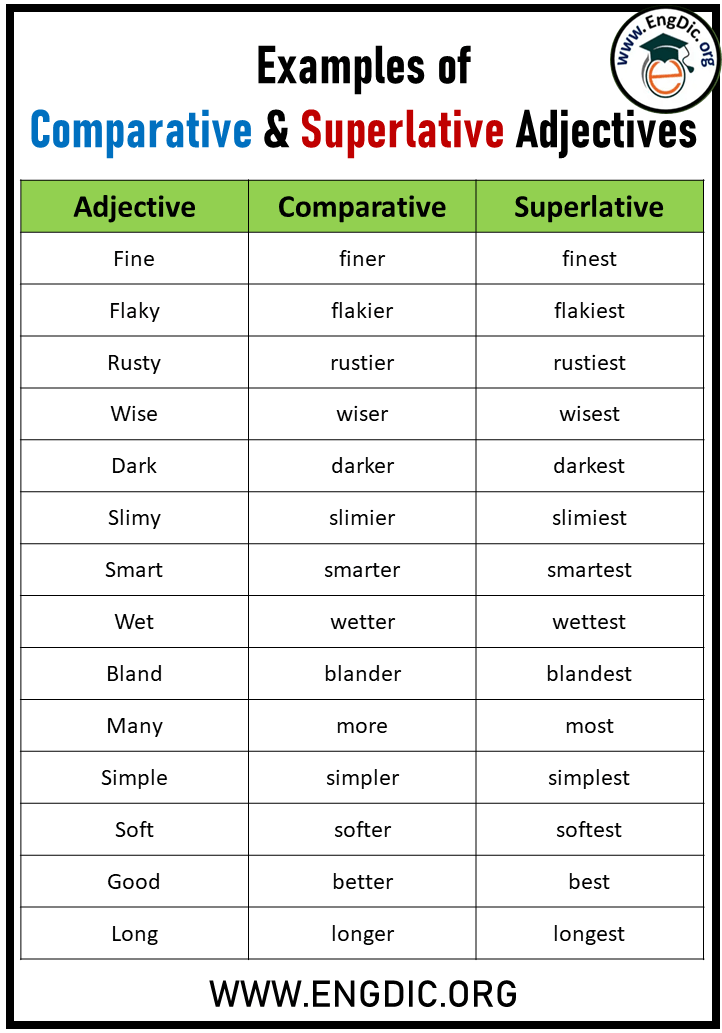
100 Examples of Comparative & Superlative Adjectives EngDic
Comparative adjectives 1 Comparative adjectives 2 Superlative adjectives We use the with superlative adjectives: It was the happiest day of my life. Everest is the highest mountain in the world. That's the best film I have seen this year. I have three sisters: Jan is the oldest and Angela is the youngest. Superlative adjectives 1
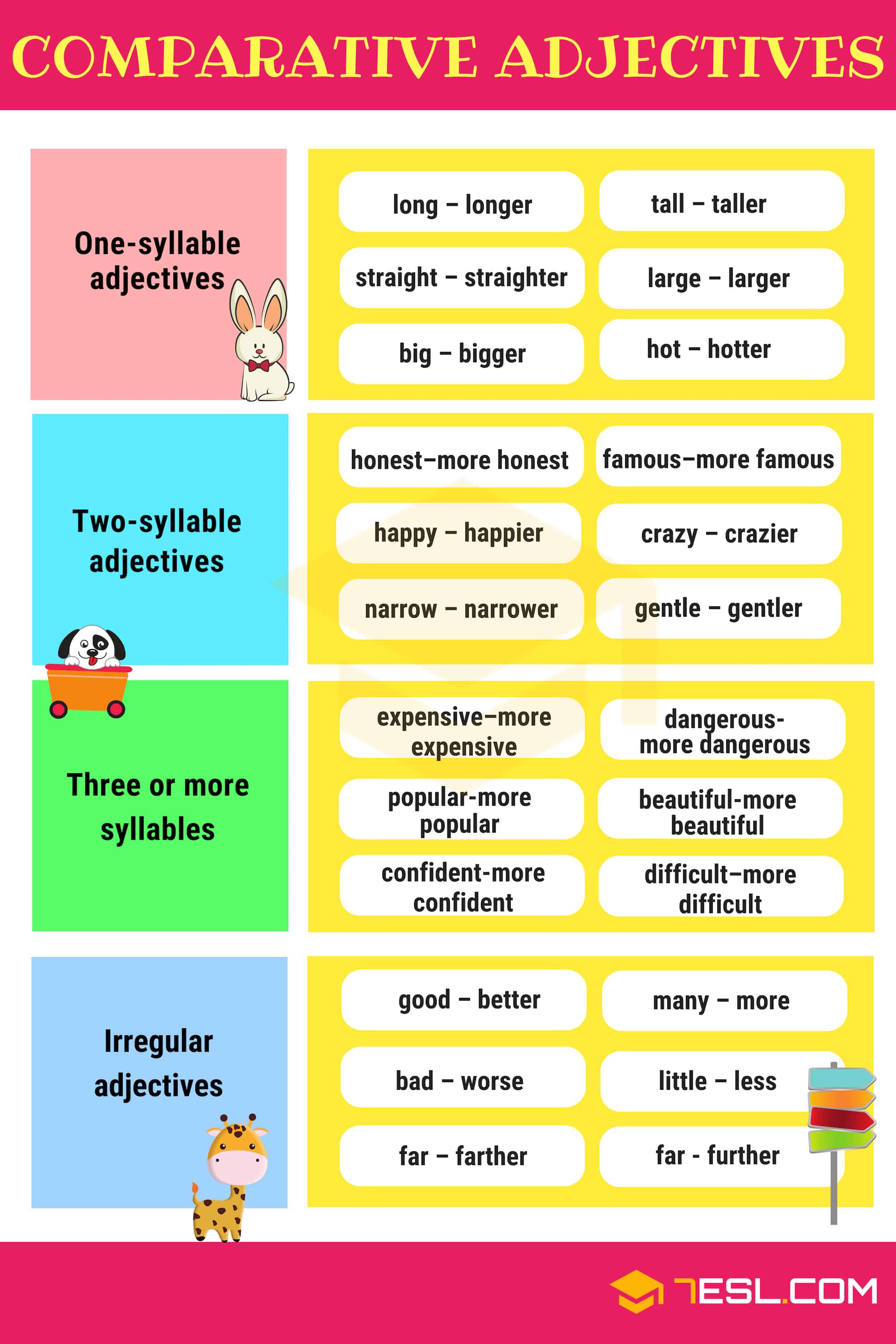
Comparison of Adjectives Comparative and Superlative Efortless English
Rules for forming superlative adjectives. To go from comparative to superlative is fairly easy. For comparatives that end in "er" , the "er" is replaced by "est". Words that use "more" become "most.". For example: Adjective/Adverb. Comparative. Superlative. fast.

Friendly Comparative And Superlative Brain
friendliest. friendly. more friendly. most friendly. energetic. less energetic. least energetic. For three-or-more-syllable adjectives, we form comparative adjectives by preceding the adjectives with "more" and superlatives by preceding the adjectives with "most". Adjective.
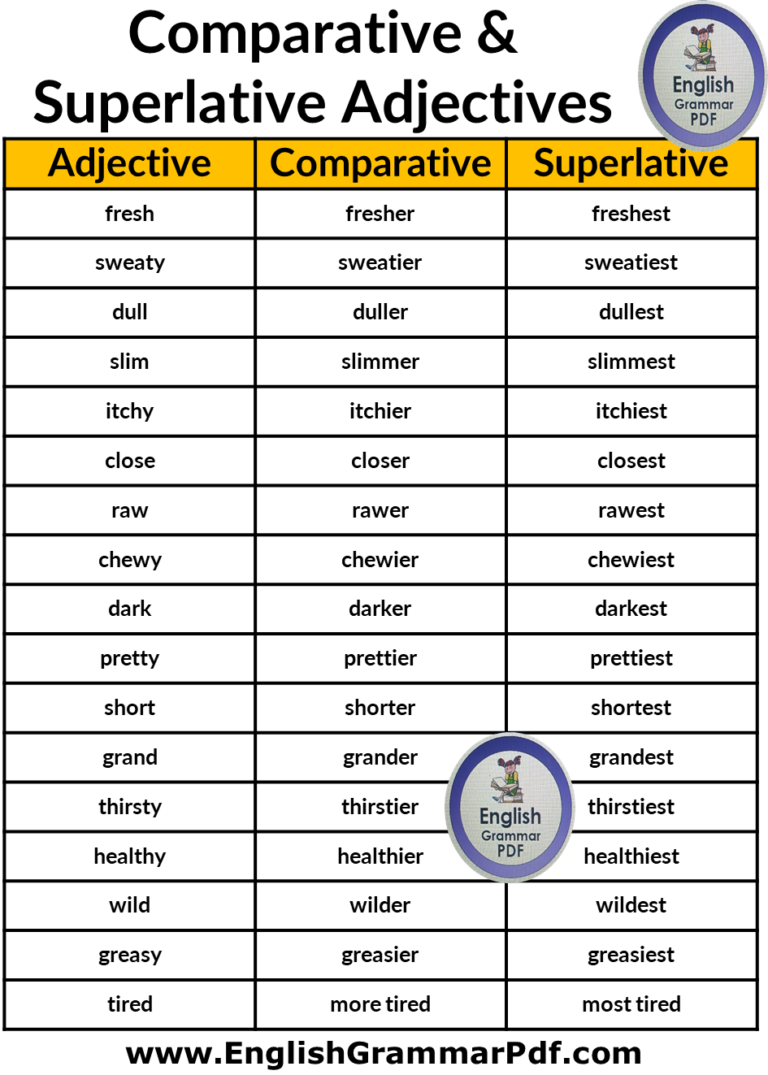
Comparative and Superlative Adjectives in English PDF English Grammar Pdf
Comparatives: more careful, more rested, more practical. Superlatives: most intelligent, most bizarre, most beautiful. And some adjectives are not modified either way, such as good (which uses better and best for its comparative and superlative forms) and bad (which uses worse and worst ). Finally, there are some adjectives, such as fatal, left.
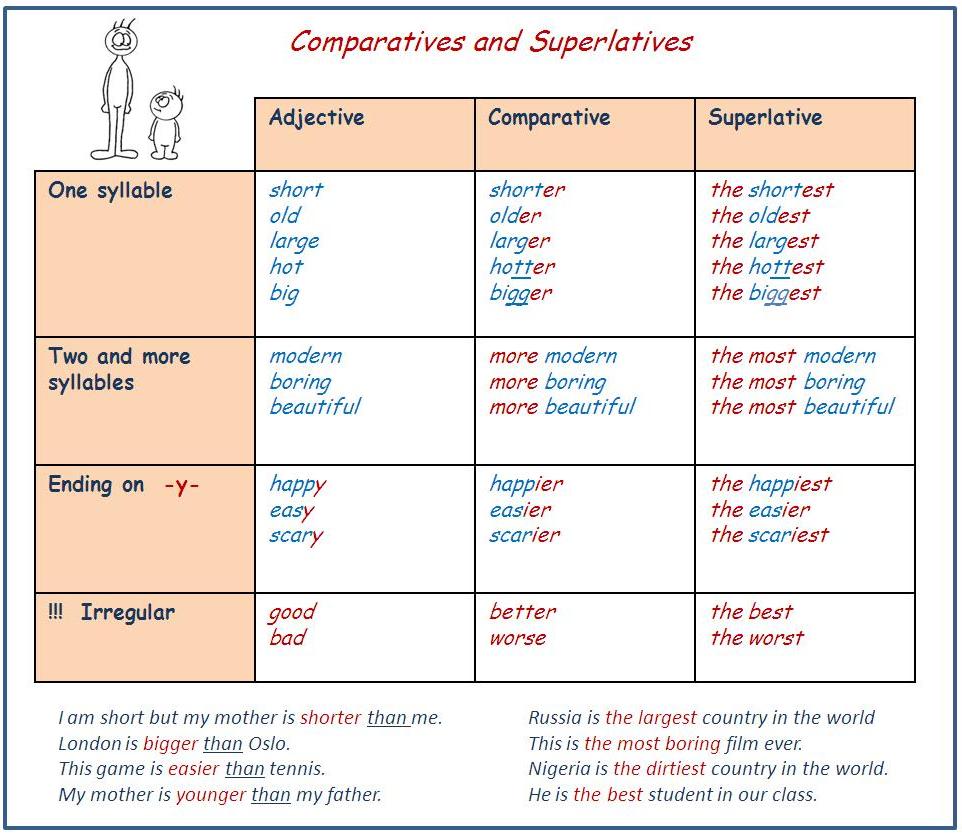
Let's practise English! USE OF ENGLISH Comparatives and superlatives
/ˈfrendli/ /ˈfrendli/ (comparative friendlier, superlative friendliest) behaving in a kind and pleasant way because you like somebody or want to help them a warm and friendly person The bar is great and the staff are friendly. friendly towards (s) somebody Everyone was very friendly towards me.

Friendly Comparative and Superlative ZackaryrilCummingr
To make the comparative form of adjectives (like 'bigger' or 'more expensive') and the superlative form (like 'biggest' or 'most expensive'), first we need to know how many syllables are in the adjective. Adjectives with one syllable Usually if an adjective has only one syllable, we add 'er' to make the comparative form.